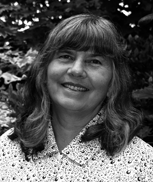Perhaps it is the chilly autumn air that awakens the urge in me to travel back to my roots, to the soil that nurtured my father, grandfather and great-grandfather. It has been nearly three decades since I made a journey back to the lanes and farmsteads of these left-but-never-forgotten homelands.
The little village where my father’s family has its roots has hardly changed at all. The irrigation dikes still flow through these flatlands, brown and slow, alongside the sandy Lincolnshire fields. The hedgerows where we played as children still stand untroubled by the passage of time, and the village still has fewer than 500 inhabitants.
I used to sleep in a small bedroom tucked into the end gable of my grandmother’s bungalow in this village, and I could look out of its tiny window, barely a foot square. I used to gaze out of this window for a few minutes every morning when I woke up and every night before I went to bed. Over the years those quiet moments became sacred for me in ways I only recognized when time and circumstance had distanced me from them.
It was such a very small window, yet it contained such a very large view. To my child’s vision, its compact little frame held nothing less than the universe: an expanse of brown furrows that seemed to be the very highway of my life, a network of irrigating dikes and a line of poplars, providing the horizontal axis and drawing my gaze to the distant horizon. In the center of the view was my aunt and uncle’s farmstead, standing proud against the sky, braving whatever the heavens might bring of threat or promise. The sun always set behind the farmstead, and it made my evening peace.
I am as old now as my aunt and uncle were when they farmed “the homestead.” I have traveled the world and made friends on every continent, while they spent their years within a few miles’ radius of the view from this little window. Yet I feel a moment’s trepidation as I ring the bell of the house that now stands where my grandmother’s cottage once stood and where my remaining relatives still live. Will they even recognize me after all these years? Will they welcome the prodigal cousin who arrives unannounced at their door?
I need not have worried. The door opens, and my cousin Pat lets out a cry of delighted amazement. “Margaret. What a wonderful surprise! I was thinking about you just this morning.” I fall into a loving embrace and know I am home. I know it because I can feel the sap of life rising up from these roots, through the lives of all my forebears, through my own life and on into the lives of generations still to come.
Soon after this visit to my childhood haunts, I am exploring a 500-year-old Tudor mansion in northwest England, and something the guide says triggers once more my memories of the little window in my grandmother’s cottage. Windows, she tells us, were very expensive in Tudor times, very much a status symbol, and a sign that the house owner was a person of substance. They were so highly prized that they were often individually bequeathed on the death of the owner. Imagine inheriting a window! The guide smiles, as she reflects on the problems that would arise if the house and the windows were not left to the same recipient.
Yet I think we all inherit “windows.” We all inherit a particular window on God and eternity from the spiritual tradition and culture in which we grow up. The windows that define our personal view are tiny, framed by our own “threescore years and ten,” but they can open up a view much larger than their own narrow dimensions. They invite us into a particular “point of view,” about the world, and God and life, but what we do with this point of view is another matter. We can let it draw our minds and hearts beyond itself into an awareness of possibilities beyond our dwelling-place, or we can allow it to narrow down our souls into rigidity, forbidding our imaginations to venture beyond the window frame.
Our windows are the attitudes and opinions we inherit from those who have gone before us, but every window on the world is just one particular way of looking at things, one particular viewpoint. The window on the other side of the house would yield a different view. The windows in quite different houses would apparently reveal a different world entirely. And yet the reality beyond the window is all one, a coherent whole, fragmented only by our individual ways of looking at it.
In these troubled and uncertain times, we may well be tempted to retreat behind our windowpanes and narrow down our vision to the tiny fragment of reality that we feel we can understand and control. Yet the Gospel invites us not only to look beyond our own immediate viewpoint but to open the windows of our souls wide, to welcome the vision that beckons us beyond ourselves toward God and one another. Left to ourselves, we will choose the narrow confines of security. But the Gospel is all about risk and challenge and trust. It is an open window, not a solid wall.
This week especially, as millions of people make their journeys home to their roots and sit once more with their kinsfolk gazing out on familiar landscapes, we remember the journey of our own lives and give thanks for all that has brought us to this moment—or our personal window on the world. It contains all that has made us who we are. It beckons us toward all we might become. And above all, it welcomes us home with the enduring glow of love.








